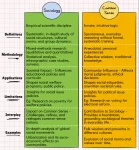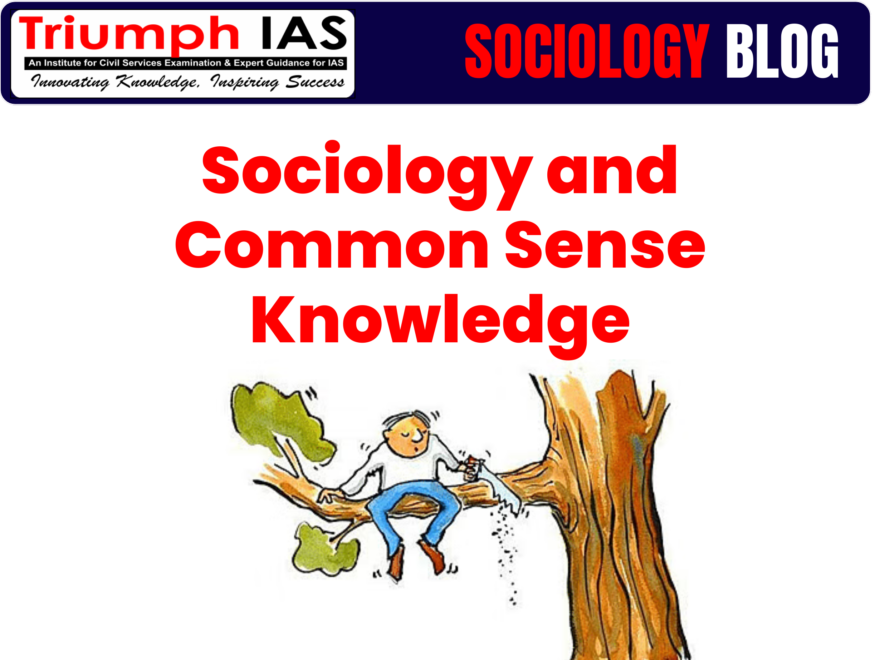
|
When considering the array of 51 optional subjects for the UPSC Mains Examination, Sociology consistently stands out as a top choice. Its inherent appeal lies in its accessibility and intriguing exploration of humanity and society, catering even to students from Science and Commerce backgrounds. With a well-defined UPSC sociology syllabus comprising only 13 units, Sociology can be comprehensively covered within 4 to 5 Month Comprehensive “Foundation to Finale” Classroom Programme, Many of Our Sociology Foundation Course Students have Cleared CSE 2023- Kajal Singh, First Attempt (Age 22) Mahi Sharma, First Mains (Age 23), Anand Sharma First Mains and Many Others. Previously also Many students like IAS Pradeep Singh, IAS Ashish, IPS Bindu Madhav, IPS Aparna Gautam, IPS Shahnaz Illyas got Success in CSE in First Attempt with Sociology Optional.
IAS Medha Anand, has get 310 marks in her optional subject sociology, 156 in paper – 1 & 154 marks in Paper-2 in CSE 2023. Notably, Sociology for UPSC has garnered a reputation as one of the Highest scoring optional subjects in the UPSC Main Examination, with numerous candidates consistently achieving 300+. Its popularity is evident in the fact that a significant proportion of top 100 rankers opt for Sociology as their optional subject, showcasing its high scoring potential, particularly for those not from sociology backgrounds. Moreover, relevance of Sociology Optional Syllabus for UPSC extends beyond the examination hall, enriching understanding across various aspects of life, from social and economic to political and cultural domains. In recent times, Sociology Optional has gained traction, aligning with the evolving trend of the UPSC Mains towards conceptual analysis. Unlike other optional subjects with unpredictable question patterns, Sociology offers stability and predictability, making it an attractive choice. This adaptability, coupled with its concise syllabus and relevance to both academic and social spheres, positions Sociology as the ideal optional subject for engineers as well as optional subject for commerce graduates and optional subject for science graduates seeking success in the Civil Services Examination. For those pursuing Sociology as an optional subject, accessing comprehensive Sociology optional notes and few good Sociology optional books, and previous years’ UPSC sociology optional question papers is pivotal for thorough preparation. Additionally, for aspirants seeking guidance, renowned educator Vikash Ranjan Sir at TRIUMPH IAS coaching institutes in Delhi, offer valuable support and resources. Vikash Ranjan Sir is the Best Sociology Teacher and Triumph IAS is the best sociology coaching in Delhi. If you are away from Old Rajendra Nagar, Delhi, you can still complete Journey of UPSC civil service preparation through online Sociology class The scientific nature of Sociology, coupled with its direct applicability to daily social interactions, renders it a subject that can be comprehended without extensive reference materials, distinguishing it from other optional subjects requiring extensive reading and research.
|
Sociology and Common Sense Knowledge
Relevant for Civil Services Examination
Sociology Paper-1, Unit-1 [Sociology- The Discipline]
Sociology and Common Sense Knowledge
- Sociological knowledge is different from theological and philosophical observations. Likewise sociology is different from common sense observation.
- Many a time we make certain statements which we have not to prove that they are true. They are based either on common sense or on practical observations and experiences on social life, though sometimes they may be based on wisdom too. However, often they are based on ignorance, prejudices and mistaken interpretation.
- Common sense knowledge, based on the accumulated experiences, prejudices and beliefs of the people, is often contradictory and inconsistent. On the other hand, scientific observations are based on verifiable evidence or systematic body of proof that can be cited. For example, some common sense statements may be quoted here: man is more intelligent than women; married people remain happier than single people; highcaste people are more talented than low-caste people.
……..Contrary to this, the scientific research or scientific inquiry finds that woman is as intelligent as man; there is no association between happiness and remaining married or unmarried by a person; caste does not determine individual’s efficiency.

- Common sense observations result in widespread ignorance and rejection of a sociological perspective when people think about human behavior.
- Common-sense perspectives predominate in people’s minds. They may, for instance, employ a biological perspective in attempting to explain family and marital arrangements; women rear children because they have a maternal instinct (biologically determined) for this task. Similarly, they may use pseudo-psychological perspective in explaining suicide (people commit suicide when they are mentally unbalanced), or a moralistic perspective in explaining crime (Criminals are people who have not developed a conscience regulating their actions). Because ordinary people are more familiar with these kinds of common-sense perspectives in their everyday lives a sociological approach does not come easily to them.
- Common sense observation is further compounded by a deeply held commitment to the idea that we are all individuals, unique beings with our own special qualities, which sociologists deny.
- Sociology, however, insists on a willingness to reject what is obvious common-sense, natural and to go beneath the surface for understanding of the world.
- As Berger puts it: “The fascination of Sociology lies in the fact that its perspective makes us see in a new light the very world in which we have lived all our lives. It can be said that the first wisdom of Sociology is that things are not what they seem”.
- Sociologists emphasise, that what is ‘commonsense’ or ‘natural’ may be by no means universal or eternal, but is frequently relative to particular societies or to particular periods in time.
- The common-sense view of differences in behaviour between men and women in the family in our society tends to assume that because there are biological and physiological differences between men and women, certain aspects of their behavior are therefore ‘natural’. For example, it is often argued that it is common sense and natural that women will engage in child-rearing and domestic tasks and that men will make sexual advances and will work outside the home.
- Mead’s study of New Guinea, ‘Sex and Temperament in Three Primitive Societies’, revealed the partiality of such common-sense interpretations of behavior pattern. Among the Apache, she found very few ‘natural differences’ in men’s and women’s behavior with neither sex exhibiting aggression: Women did the heavy carrying (Men stayed at home with their wives during and after child birth, ‘sharing’ the pain and strain. Among the Munduracco, both sexes were aggressive, children were treated brutally by both parents and lovemaking was rather like a pitched battle. Among the Tchambuli, yet further variation occurred: men adorned themselves, gossiped, made things for trade, while women selected their partners, made the sexual advances, did all the trade, and were the more aggressive sex. Obviously, we cannot explain these very striking variations in behavior via biology, since the people in the various societies were all the same biologically.
- To the Hopi Indians of North America it is ‘common-sense’ view that rain-clouds are Gods and must therefore be made happy through exhibiting Rain dance. This is a view not entirely consistent with that of the Meteorological office. The essential point, then, is that one person’s common sense is somebody else’s nonsense and there are many examples of sociological and anthropological investigation questioning and exploding many common-sense notions about behavior. Although the use of everyday common-sense beliefs is, usually not only unsystematic and inadequate but also often contradictory.
- The common sense explanations are generally based on what may be called ‘naturalistic’ and/or individualistic explanation. A naturalistic explanation for behavior rests on the assumption that one can really identify ‘natural’ reasons for behavior. An individualistic explanation of some event or phenomenon assumes that the event can be readily understood and explained solely through reference to the behavior of the individuals involved in it. There is no attempt to understand or explain the phenomenon in terms of wider social forces. A naturalistic explanation of behavior rests on the assumptions that one can readily identify ‘natural’ (or sometimes ‘God-given’) reasons for behavior. For example, it is only natural, that two people should fall in love, get married, live together, and raise a family. Such explanations are rejected as inadequate by the sociologist. The individualistic explanation is rejected because it does not recognize the importance of wider social forces acting on the individual that he or she cannot control. The naturalistic explanation is rejected because it fails to recognize that behavior patterns are not primarily biologically determined but rather reflect social conventions learned by individuals as members of social groups, or, more generally, society.
- Sociology thus breaks away from both common sense observations and ideas as well as from philosophical thought. It does not always or even generally lead to spectacular results. But meaningful and unsuspected connections can be reached only by sitting through masses of connections
- Great advances in sociological knowledge have been made, generally incrementally and only rarely by a dramatic breakthrough. Sociology has a body of concepts, methods and data, no matter how loosely coordinated. This cannot be substituted by common sense. Common sense is unreflective since it does not question its own origins. Or in other words it does not ask itself: “Why do I hold this view?”
- The sociologist must be ready to ask of any of our beliefs, about ourselves-no matter how cherished–“is this really so?” The systematic and questioning approach of sociology is derived from a broader tradition of scientific investigation. This emphasis on scientific procedures can be understood only if we go back in time. And understand the context or social situation with which the sociological perspective merged as sociology was greatly influenced by the great developments in modern science.

How is sociological study different from the common sense?
- Take any average person, we find that in the process of growing up, he has come to arrive at a “theory” on almost all aspects of social life. He has a theory of good and bad of marriage and family, city and country life, of making money or of joining politics. Can such a theoretician be called a sociologist? Well, in a way Yes! He is an amateur sociologist of sorts but no more. Unless we’re ready to call a stargazer an astronomer, a peasant an agronomist and tribal living in a forest, a botanist.
- Thus a common sense-based view of social life is not sociology. This holds true even if sometimes we find that statement based on the folk wisdom come remarkably close to sociological theories. For example, “give the dog a bad name and it will get blamed for lot many things”. It is a piece of folk wisdom that does convey the essence of Howard backer’s “Labelling Theory of Deviance” which says that a person’s behavioural patterns is likely to be influenced by the types of labels given to him. Go on calling somebody a vandal and it is quite likely that he might live up to his reputation.
- However, we need not be on the defensive about the special status of Sociology as a specialized body of knowledge. Simply because even lay man tend to explore the areas, which sociologists also do. What distinguishes Sociology from a common sense is not an exclusive phenomena to explore but a different way to look at the phenomena which others also can look at though not in the same way.
To repeat, sociology is essentially a special way of looking at the elements of social life. This special
way of looking at things is what makes sociology a systematic study. It is important to identify the
elements that are special to sociologist’s way of looking at things, which are as follows:
- Sociology approaches social life from the “man – in – society” standpoint. It conveys the dualistic and apparently paradoxical conception of social life. It means that inclusive collectivity viz. society and its members exist in a relationship of interdependence in which on one hand man are viewed as shaped by their groups and group heritage on the other hand, individuals are viewed as creators of their common society and culture. Illustrations of both these conceptions of social reality can be seen in our earlier description of the elements of social life. We mentioned that people behave in society as status occupants and by virtue of their behaviour gets constrained by the need to conform to the role expectations. These role expectations are defined by the norms of the society that are essential for collective living. Further, while enacting this definite behaviour, people use symbols that are collectively shared.
- The social behaviour is impossible without the knowledge of various aspects of culture, namely values, norms, belief through socialisation. Thereby society gets implanted in man and shapes his behaviour. Now this illustrates the first aspect namely, “society creates man”. Evidence of second aspect of sociologists conception of social life, that is, “Man Creates Society” can be found in our understanding of social behaviour in terms of meanings ascribed by the individuals which form basis for motives that underlie social action.
- Now these meanings and motives of the individual may differ from those commonly shared by the group and therefore may lead to deviant behaviour on the part of individuals that in turn may change the behaviour of the whole group. Christ, Lenin, Gandhi was such individuals who could change their societies. Even the lesser individuals do it to lesser extent.
- Sociology has a special and irrelevant attitudes towards social life Peter L Berger has called
it a “debunking attitudes towards world taking four granted”. In his profession sociologists
is a sceptic who refuses to accept the self – evident, common sense-based view of the world
at its face value, rather he makes a deliberate attempt to go beyond the “visual” and the “apparent” to look for the hidden patterns, implicit meanings, underlying causes and unintended consequences.
- Sociologists work is to peep into people’s life and he does it with a passion to look behind closed doors. In fact a popular textbook writer has noted that, an adolescent who takes special delight in peeping into places, otherwise prohibited by norms of decency, has the making of a perfect sociologists only he can retain the voyeuristic curiosity throughout his professional career and directe it into all spheres of social life.
- Illustrations of this debunking attitude can be found in the works of two great sociologists and is nowhere more evident than in the study of religion, the most venerated institution in the society. We can look at the views of Emily Durkheim and Karl Marx who have made pioneering contributions to the growth of sociology. In spite of the differences in their views on the role of religion both were alike in their almost blasphemous views on religion.
- While discussing the consequences of religion for social life, Durkheim said that the sociologists must distinguish between what believers thinks and what actually happens. People might believe that by worshipping God together, they might be given health, prosperity or wealth, but according to Durkheim what actually results from such collective worships is increased social cohesiveness. According to him religious beliefs including those related to the idea of God or any other sacred objects are symbolic representations of the society. Thus by worshipping God one is worshipping society.
- Now this makes a drastic break from the official view of religion. For example, the Christians belief is “God created man in his own image” while Durkheim was saying that “Society created God in its own image”. Same debunking attitude is found more conspicuously by Karl Marx’s critique of religion. For him, religion in spite of its past appearance and noble intentions is one of the instruments of exploitations of the poor by the rich. It acts like a painkiller creating false sense of satisfaction among the poor and therefore rendering them insensitive to the real cause of misery.
- These examples illustrate that the concern of sociological investigation is to penetrate beyond the surface view of social life and seek explanations in terms of underlying causes, meanings or unintended consequences of various social phenomena. The reason due to which the sociologists are not contended with the generally accepted view of social life can be traced to the circumstances of sociology’s birth.
- Sociology was born in times of turmoil, when Europe was in the throes of transition. The ancient regimes with their divinely obtain things, anointed Queen’s, and noble courtiers had been destroyed by commoners like Napoleon and the world of industrial bourgeoisie had taken its place. The trouble with the new world was that though it was essentially a man-made world, yet it seemed to be perpetually going out of control of its makers. Here, lay the cause of discontentment and therefore the quest to know the world better by looking beyond the obvious. Hence the rise of organised scepticism that became the hallmark of Sociology.
- Another important feature of Sociology’s way of looking at things is that it approaches social life with the help of definite methods. Sociology being a late comer, had the advantage of gaining from the experience of other branches of knowledge in devising the methods of enquiry. But at the same time it had to face the limitation of having to apply these methods to study the most complex of all phenomena namely, human behaviour.
Conclusion:
- Thus, a statement made on common sense basis may be just a guess, a hunch, or a haphazard way of saying something, generally based on ignorance, bias, prejudice or mistaken interpretation, though occasionally it may be wise, true, and a useful bit of knowledge. At one time, common sense statements might have preserved folk wisdom but today, scientific method has become a common way of seeking truths about our social world.
- Sociology has a special and irreverent attitude towards social life.
- Peter L Berger has called it a “debunking attitude towards world taken for granted.”
- Durkheim “Common sense perceptions are prejudices which can mar the scientific study of social world”
- Alfred Schutz – organized, typified stocks of taken for granted knowledge and generally not questioned.
- Garfinkel – common sense produces a sense of organization and coherence because people draw on implicit rules of how to carry on CSK through socialization, individual experience, others’ experience.
- Three dimensions of culture have been distinguished :
- Cognitive: This refers to how we learn to process what we hear or see, so as to give it meaning dentifying the ring of a cell-phone as ours, recognizing the cartoon of a politician).
- Normative: This refers to rules of conduct (not opening other people’s letters, performing rituals at death).
- Material: This includes any activity made possible by means of materials. Materials also include tools or machines. Examples include internet ‘chatting’, using rice-flour paste to design kolam on floors.
Explanation of Poverty by Common sense
- People are poor because they are afraid of work, come from ‘problem families’ are unable to budget properly, suffer from low intelligence and shiftlessness.
Explanation of Poverty by Sociologically
- Contemporary poverty is caused by the structure of inequality in class society and is experienced by those who suffer from chronic irregularity of work and low wages.
The End of the Blog: Sociology and Common Sense Knowledge

|
|
Frequently Asked Questions by
UPSC Sociology Optional Students
How to prepare for the Sociology Optional without coaching?
Understand the syllabus thoroughly: Familiarize yourself with the entire syllabus for both Paper I and Paper II. Download the official UPSC syllabus and use it as your roadmap. You can attend Sociology Orientation Lectures by Vikash Ranjan sir on YouTube
Build a strong foundation: Start with introductory textbooks and NCERT books to grasp core sociological concepts. You can start with Introduction to Sociology books
Choose reliable study materials: Select high-quality textbooks, reference books, and online resources recommended by experts. You can opt for Vikash Ranjan Sir Notes too.
Develop a study schedule: Create a realistic and consistent study schedule that allocates dedicated time for each topic. Stick to it and track your progress.
Take notes effectively: Don’t just passively read. Summarize key points, create mind maps, or use other note-taking techniques to aid understanding and revision.
Practice answer writing: Regularly write answers to past year question papers and model questions. Focus on clarity, structure, and critical thinking. Evaluate your answers for improvement.
Seek guidance: You can take free Mentorship on Sociology Optional preparation by Vikash Ranjan sir. Connect with Vikash Ranjan sir (7303615329) to share strategies, ask questions, and stay motivated.
Can I prepare for Sociology Optional without coaching?
Absolutely! Many aspirants successfully clear the exam through self-study. However coaching can provide structure and guidance, for time bound preparation.
What are the benefits of preparing without coaching?
Cost-effective: Coaching can be expensive, and self-study allows you to manage your resources efficiently.
Flexibility: You can tailor your study plan to your individual needs and pace.
Independence: You develop critical thinking and research skills, valuable assets for your career.
What are the challenges of preparing without coaching?
Discipline and motivation: You need self-discipline to stay on track and motivated without external guidance. Coaching and Teacher keeps you motivated.
Access to resources: You may need to do extra research to find quality study materials and answer-writing practice opportunities. Teacher help you on this respect.
Doubt clearing: You might lack immediate access to someone to address your doubts and questions. Teacher like Vikash Ranjan sir is accessible to his students 24×7 Mo- 7303615329
What additional resources can help me?
Vikash Ranjan Sir’s YouTube channel and website: Offers free Sociology lectures, study materials, and guidance.
Triumph IAS website: Provides past year question papers, model answers, and other helpful resources.
Public libraries and online databases: Utilize these resources for access to relevant books, journals, and academic articles.
Follow us :
 https://www.instagram.com/triumphias
https://www.instagram.com/triumphias
 www.triumphias.com
www.triumphias.com
 https://www.youtube.com/c/TriumphIAS
https://www.youtube.com/c/TriumphIAS
 https://t.me/VikashRanjanSociology
https://t.me/VikashRanjanSociology


















